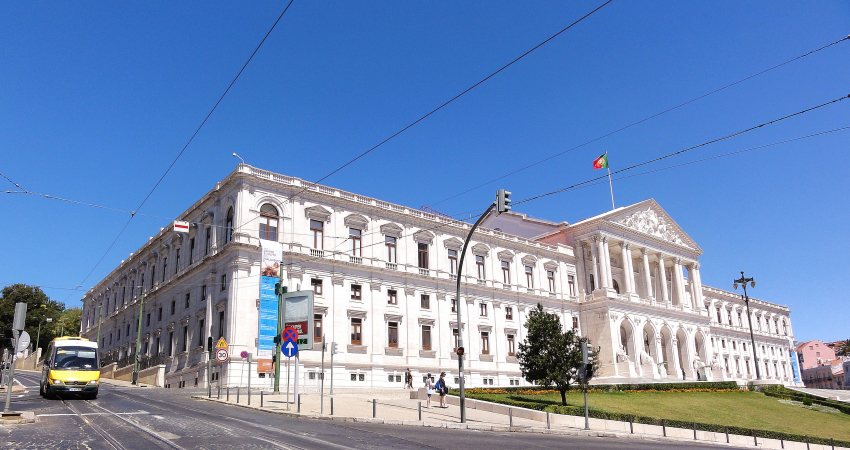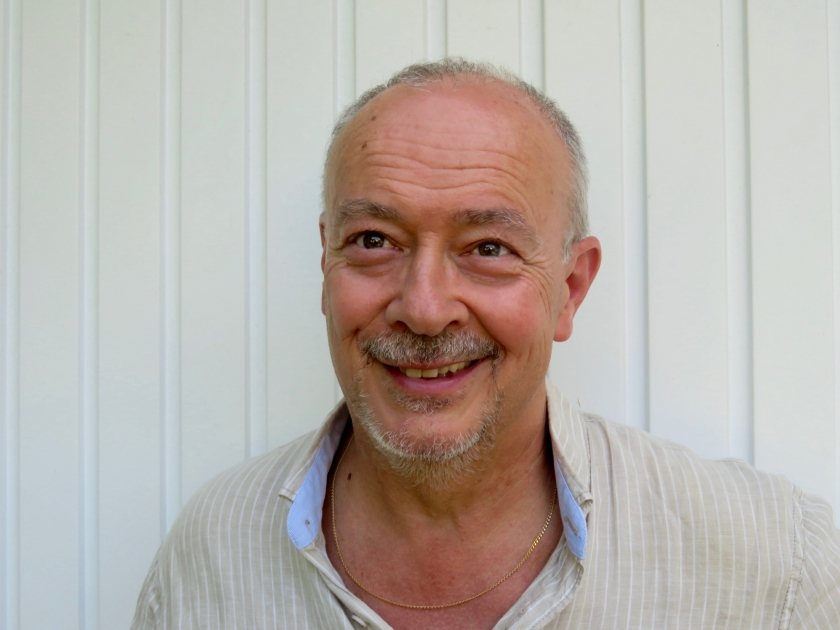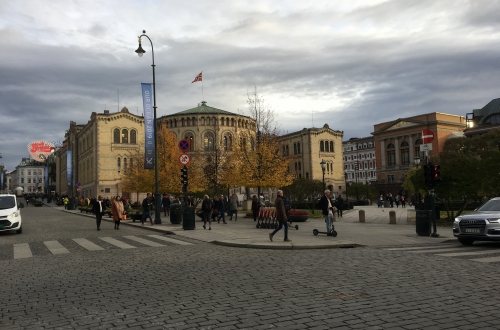Our partners abroad (3): The Portuguese observatory OAT
The OAT advices the Portugese parliament (picture: Jose Manuel, CC BY-SA 3.0 via Wikimedia Commons)

The Rathenau Instituut has been unique in the Netherlands for 35 years. Worldwide there are at least 22 other institutes that advise parliament and citizens on the possible societal consequences of technological developments. In the European Parliamentary Technology Assessment network (EPTA) they cooperate and try to learn from each other. Now that the Netherlands is EPTA chair for a year, we want to get to know some of these institutes better through a series of articles. In episode three: António Moniz of the Portuguese Observatory for Technology Assessment.
In short:
- Portugal does not have a culture in which politicians turn to independent scientists for information, says Professor António Moniz.
- Some 25 researchers are affiliated with the Technology Assessment Observatory (OAT).
- Plans to establish an institution for parliamentary technology assessment have been on the back burner for years.
António Moniz is professor of sociology at NOVA University in the Portuguese capital Lisbon. At home, wearing a blue jumper, he sits behind his computer in a small room with a low ceiling. He warns that an enormous racket could break out at any moment because of construction work elsewhere in the building. It doesn't happen. But his computer does beep regularly when an e-mail arrives from his students: 'They have to hand in something today'.
What is an observatory?
Within the research centre for social sciences at NOVA University, there are research groups around certain themes like work and technology, health and culture, and there are observatories for example for climate change and violence and gender. About 25 scientists are affiliated with the observatory for technology assessment, which was established in 2015. These are mostly people who have just obtained their doctorates or who are still working on their doctoral research. Our observatory is in contact with the Portuguese Parliament in various ways, especially with the Commission for Science, Education and Culture. We forward our research and invite parliamentarians for student presentations.
Why does Portugal not have an institute for this?
Our parliament does not have its own support system when it comes to the influence of technology on society. There are, however, plans to establish such an institution. Back in 2015, there was an approved plan in which we also had a clear input. Then the elections came, a new education and science commission and another government that again had to be convinced of its importance, again new elections and then COVID. Now we are in the process of re-establishing contacts. But the committee members seem more interested in the problems in education at the moment: the working conditions for teachers and the consequences of COVID. In Portugal, there is no real culture of parliamentarians turning to science for information, not even in other fields such as health care or the innovation of the economy. They rely heavily on the institutions that also provide the government with information.
”I often encourage my students to look at what the Rathenau Instituut is doing.
What are the themes in Portugal when it comes to technology assessment?
We are working on several issues, such as the deployment of the 5G network. There are health risks associated with this because of radiation, for which there is hardly any attention in Portugal. Other countries are paying more attention. Belgium and Finland even have municipalities that have banned 5G. Our PhD student who is currently researching 5G could be a good advisor to our parliament. We have worked on genetic manipulation of food, in particular food made of animal products. And we are also looking into nanotechnology. Which new products can be developed? What are the dangers? How do these tiny particles actually interact with the human body? We still know far too little about that.
Furthermore, here in Portugal, the extraction of lithium is becoming increasingly important. Lithium is used to make rechargeable batteries for electric cars, for example. In the north of our country, a large part of the European reserves can be found, especially in nature reserves. But the extraction of lithium can have an enormous impact on the landscape. It faces strong opposition from the local population and environmentalists.
What can you learn from the Netherlands?
I often encourage my students to look at what the Rathenau Instituut is doing. When it comes to technology assessment, you are one of the most advanced institutes in the world. You are also good at science communication. You have contacts with trade unions, employers' organisations and other stakeholders. We don’t have such a tradition of science communication. With us, those contacts are really at a minimum level, mostly based on casual personal relationships. Our reports could also be made more accessible to policy makers. Now, we mainly produce dissertations of up to 300 pages. We should shorten these to documents that only answer the politicians' most important questions and include the names of people they can contact for follow-up information. It has been difficult to produce info leaflets like these for policy makers.
What can the Netherlands learn from Portugal?
Perhaps the importance of higher education for our work. Our greatest strength is that we have many PhD students who work with us. When students write their master's thesis, they have to show that they have mastered the methodology and can work with sources. When they write their PhD dissertation, they also need to be innovative, to take up a new subject that really matters.
We have also given advice to Spain. For a long time, we only had one full EPTA member on the Iberian Peninsula. The EPTA member is seated in Barcelona and supports the Catalan state parliament. For the Spanish parliament in Madrid, there was nothing at all. A group of Spanish scientists then contacted us to see what we were doing. Recently, the parliament in Madrid has a technology assessment unit, consisting of three people. Although this is a small number, the Spanish are now ahead of us. We are now letting our own parliamentarians know about this, in the hope that we can accelerate things here as well.
Professor of sociology António Brandao Moniz teaches at NOVA University in Lisbon since 1983. In 1992 he obtained his doctorate with a thesis on the technological and organisational consequences of robotisation in Portuguese companies.
When, during sabbatical leaves in 2002-03 at ISI Fraunhofer, and later in 2007-08 at ITAS-KIT (the Rathenau Instituut's German sister institute in Karlsruhe), he was working as an invited researcher and got the idea to set up a joint German-Portuguese PhD programme for technology assessment. That proved very difficult because of all the bureaucracy involved. Sighing, 'In Germany something like that is practically impossible.’
Back in Portugal, he founded a doctorate programme on Technology Assessment at his own university in 2009. Currently, he has helped eight PhD students graduate. Two more are delivering their theses, and next year, more should follow. 'Most of them take quite a long time because they also have other jobs.’
When Germany takes over the EPTA presidency next year, Moniz wants to convince the other EPTA members to elect a joint Iberian presidency in 2023, dividing the activities between Lisbon, Barcelona and Madrid.



